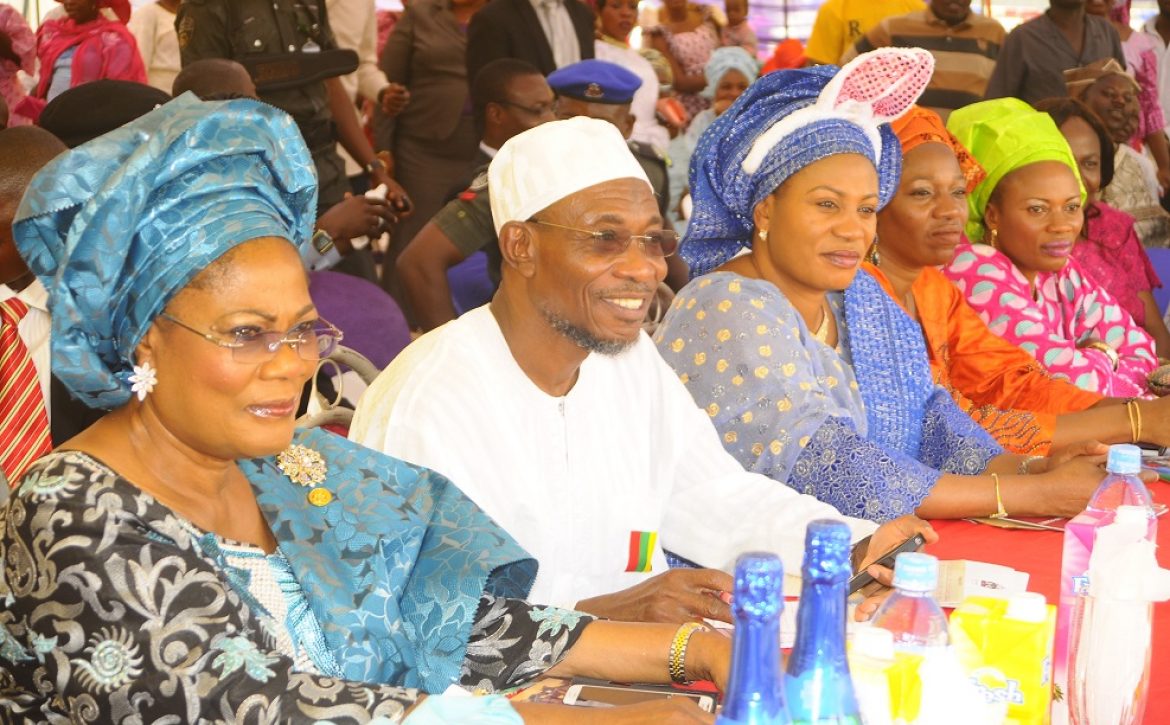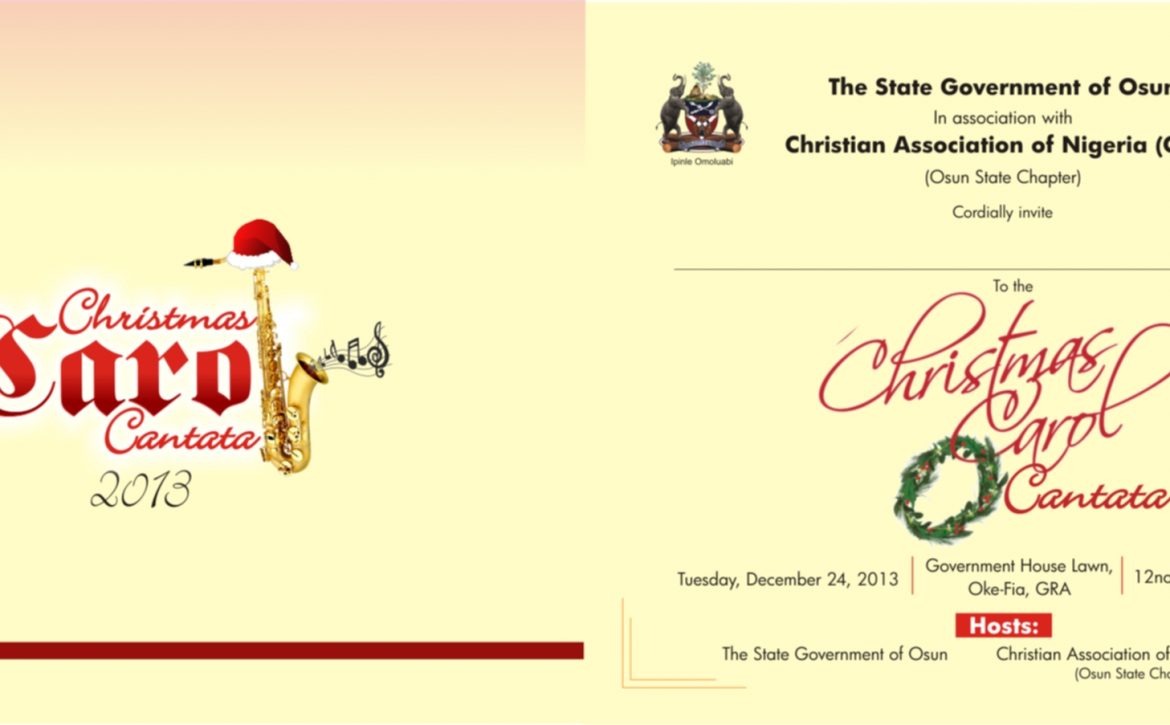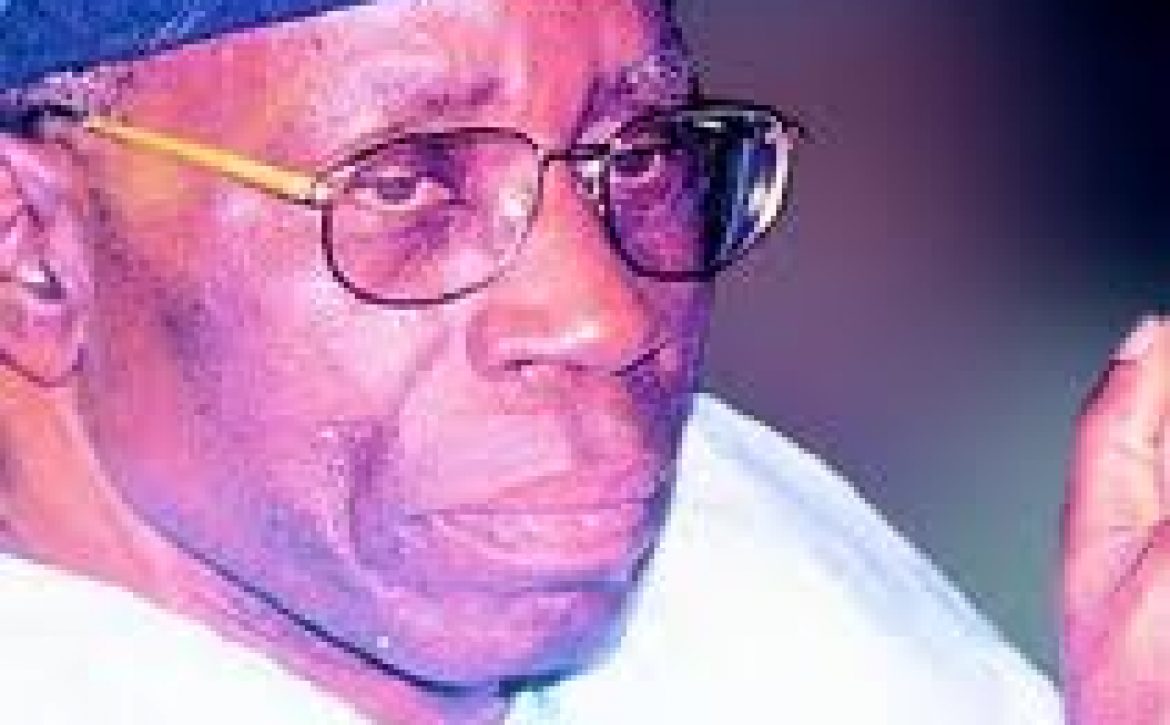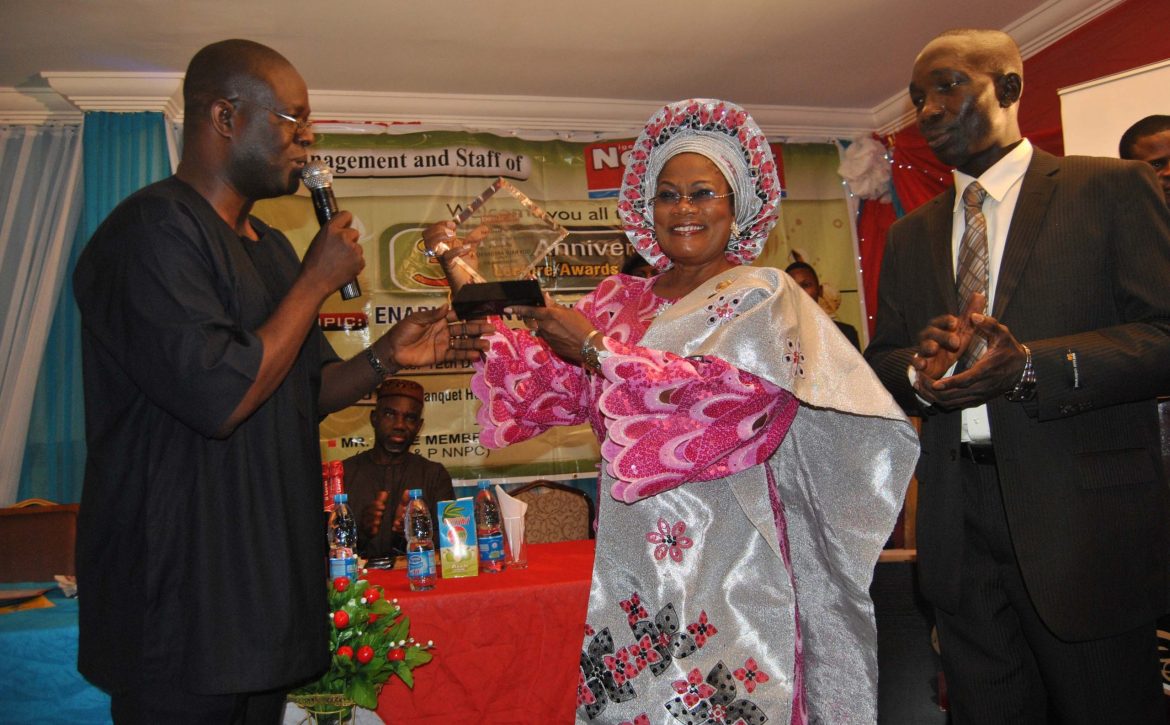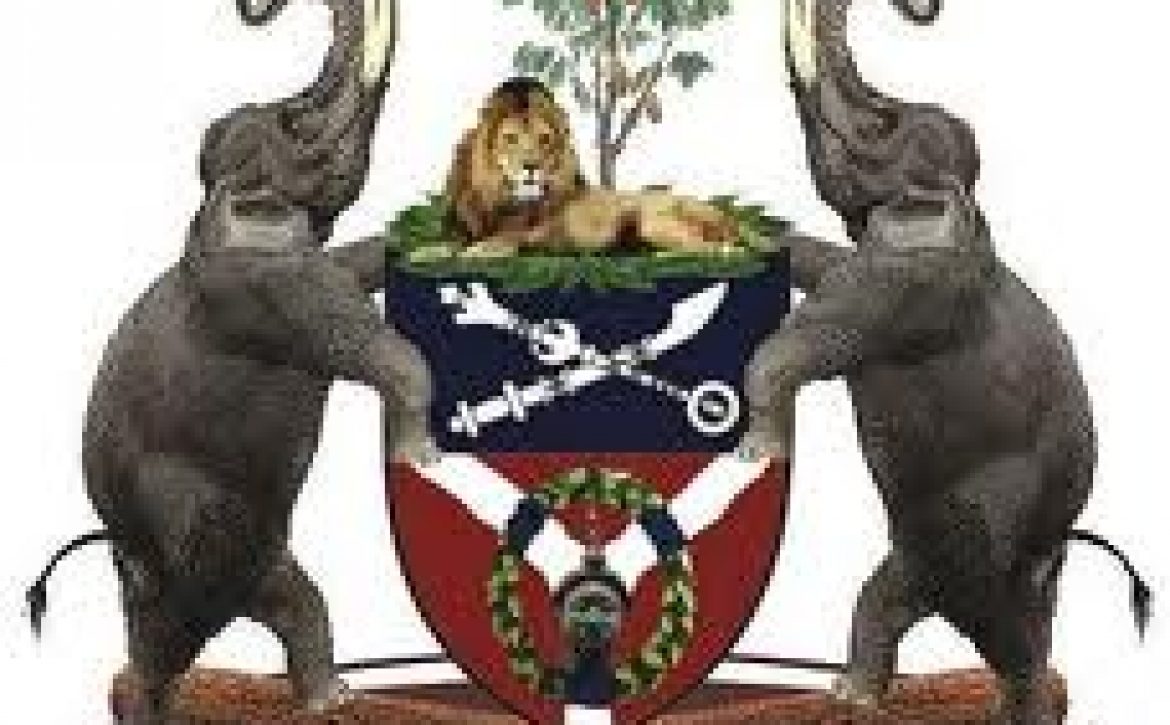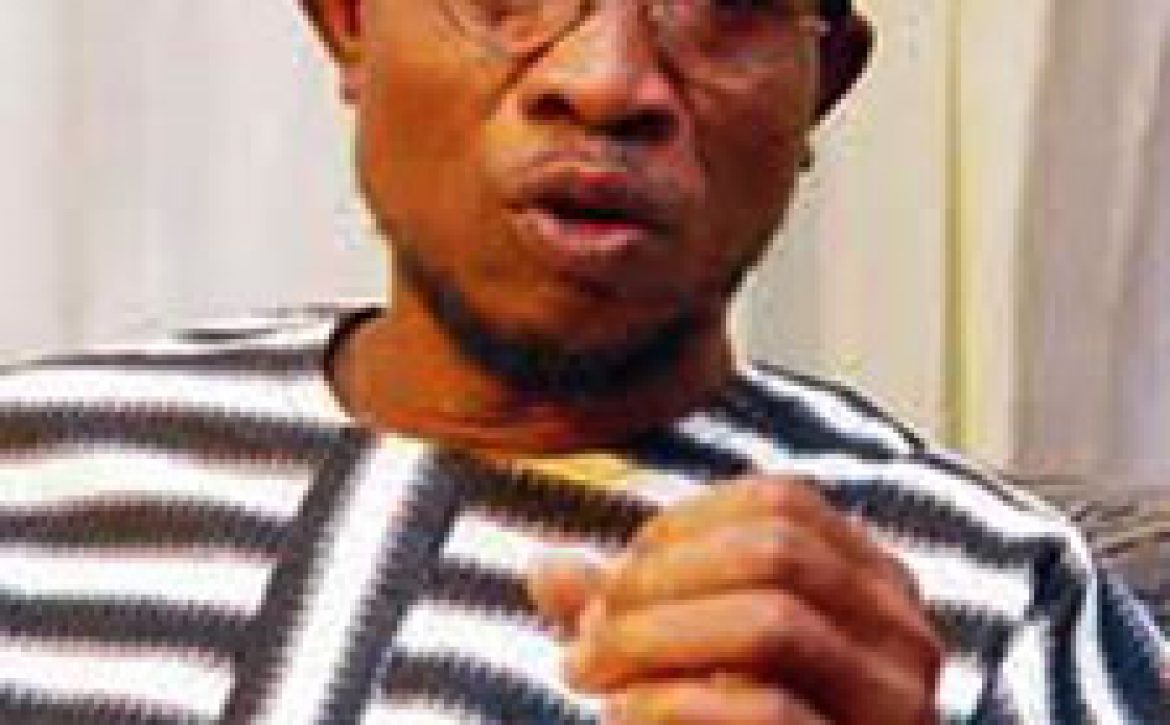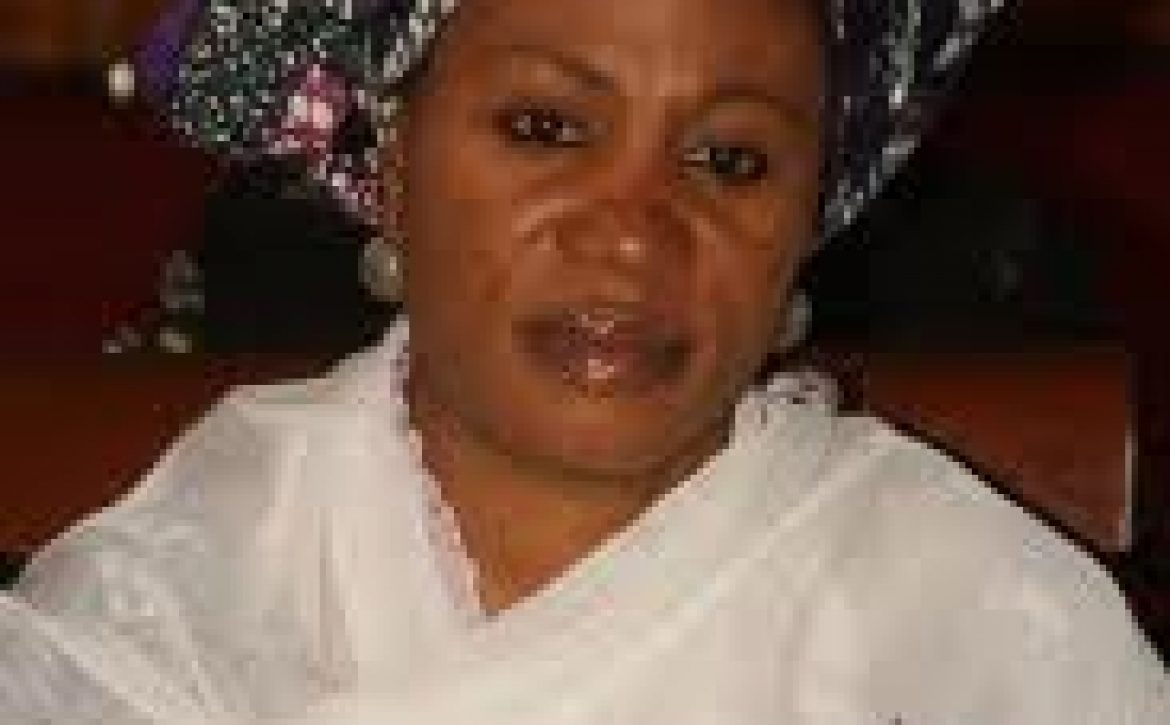The Osun State government’s financial institution, the Omoluabi Savings and Loans Limited, has recapitalised with additional N1.65 billion shares.
Speaking with reporters in Osogbo, the state capital, after a board meeting, the Chairman of the Board of Directors, who is also the Commissioner for Finance, Economic Planning and Budget, Dr. Wale Bolorunduro, said the firm is offering 3 billion shares at 59 kobo per share.
He said the recapitalisation would reawaken the capital market with the recapitalisation.
The commissioner said: “The company would be breaking the jinx of the five years absence of Initial Public Offer (IPO) in the country since the crash in the capital market by listing 3 billion shares for offer at 50 kobo per share on Friday, December, 27, 2013. The offer closes that day.”
He said the recapitalisation means that after subjecting the company to the discipline of the Security Exchange Commission (SEC) and the Stock Exchange, it has been opened to ownership for more indigenes and residents of Osun State.
Bolorunduro said it is an opportunity for workers to buy more shares and earn dividends as well as borrow with ease.
He said increase in shares means increase in money with which the company can do business as well as the mortgages it can grant to people.
The commissioner said: “This is another way of bringing succour to the people, who cannot approach commercial banks.”
He said the recapitalisation became imperative as a result of the Central Bank of Nigeria’s (CBN’s) statutory regulations, which end on December 31.
Bolorunduro assured that more housing mortgages would be available on long term as an added advantage of the recapitalisation.
THE NATION
Category: General
Pictures from the Xmas/ End of the Year Party organised for the State Children by the Wife of the State Governor in collaboration with the Ministry of Women and Children Affairs, at Government House Lawn, Osogbo, State of Osun on Monday 23-12-2013

From left, Deputy Governor State of Osun, Mrs Titi Laoye-Tomori;
Governor, Ogbeni Rauf Aregbesola; his Wife, Sherifat; Commissioner for
Women and Children Affairs, Mrs Mofolake Adegboyega and Mrs Foluke
Amere, during the Xmas/ End of the Year Party organised for the State
Children by the Wife of the State Governor in collaboration with the
Ministry of Women and Children Affairs, at Government

Governor State of Osun, Ogbeni Rauf Aregbesola and his wife, Sherifat
helping the Childrens in cutting the cake, marking the Xmas/ End of
the Year Party organised for the State Children by the Wife of the State Governor in collaboration with the Ministry of Women and
Children Affairs, at Government House Lawn, Osogbo, State of Osun on
Monday 23-12-2013
With them are, Commissioner for Women and Children Affairs, Mrs
Mofolake Adegboyega (left); Special Adviser to the Governor on Women
and Children Affairs, Barrister Funmilayo Eso-Williams (2nd right) and others on Monday 23-12-2013

Governor State of Osun, Ogbeni Rauf Aregbesola and his wife, Sherifat
helping the Childrens in cutting the cake, during the Xmas/ End of
the Year Party organised for the State Children by the Wife of the
State Governor in collaboration with the Ministry of Women and
Children Affairs, at Government House Lawn, Osogbo, State of Osun on
Monday 23-12-2013

Governor State of Osun, Ogbeni Rauf Aregbesola and his wife, Sherifat,
dancing with Childrens from the School for the Handicapped, during the
Xmas/ End of the Year Party organised for the State Children by the
Wife of the State Governor in collaboration with the Ministry of
Women and Children Affairs, at Government House Lawn, Osogbo, State of Osun on Monday 23-12-2013

Governor State of Osun, Ogbeni Rauf Aregbesola acknowledging cheers
from Enthusiastic Children, during the Xmas/ End of the Year Party organised for the State Children by the Wife of the State Governor in
collaboration with the Ministry of Women and Children Affairs, at
Government House Lawn, Osogbo, State of Osun on Monday 23-12-2013

Governor State of Osun, Ogbeni Rauf Aregbesola acknowledging cheers
from Enthusiastic Children, during the Xmas/ End of the Year Party organised for the State Children by the Wife of the State Governor in
collaboration with the Ministry of Women and Children Affairs, at
Government House Lawn, Osogbo, State of Osun on Monday 23-12-2013

Governor State of Osun, Ogbeni Rauf Aregbesola acknowledging cheers
from Enthusiastic Children, during the Xmas/ End of the Year Party organised for the State Children by the Wife of the State Governor in
collaboration with the Ministry of Women and Children Affairs, at
Government House Lawn, Osogbo, State of Osun on Monday 23-12-2013
The Government of the State of Osun in cooperation with the Christian Association of Nigeria (CAN) present an afternoon of praise and carols. This will hold tomorrow, Tuesday, 24th Dec 2013 at the Government HOuse Oke-Fia, 12noon prompt.
You are hereby invited to share in this joy of Yuletide with the Governor, Ogbeni Rauf Aregbesola
Season’s Greetings and a happy holiday to you all.

 In the context of the third anniversary of the swearing in of Ogbeni Rauf Adesoji Aregbesola as the fourth democratically elected governor of the state of Osun , the title of this essay would suggest that Aregbesola is staging a performance indicative of an eventual rating of historic magnitude. That immediately raises a question of what constitutes history in relation to the role of an individual.
In the context of the third anniversary of the swearing in of Ogbeni Rauf Adesoji Aregbesola as the fourth democratically elected governor of the state of Osun , the title of this essay would suggest that Aregbesola is staging a performance indicative of an eventual rating of historic magnitude. That immediately raises a question of what constitutes history in relation to the role of an individual.
It is true that irredeemable idealists start out with a mindset to make history. But as Karl Max conclusively puts it, “Men make their own history but they did not make it as they please. They do not make it under circumstances chosen by themselves, but under circumstances directly encountered, given and transmitted from the past”. Making history is thus not a function of the individual’s wish to make history. Rather, it is the situation on ground and the creative interpretation of that situation in the context of balance of social forces that constitutes the making of history.
Applied to Rauf Aregbesola, let me start with the proposition that no governor in Nigeria inherited a more horrible objective situation than he did. Aside from the fact that the state is one of the poorest in the country, there was a real crisis of alienation. This was in terms of a total disconnect between the government and the people . There is history in the speed and deftness with which Aregbesola’s regime was able to recognize this dangerous situation and successfully restored responsibility and responsiveness in governance. His arrival in the Government House on November 27, 2010 signaled a new dawn for a state hitherto ravaged by locusts and savagely raped by interlopers imposed by do or die political brinkmanship and bogged down by a huge debt burden. Dilapidated infrastructures, an abysmal low workers’ morale, disorganized education sector, an health sector which was on life support and an unacceptable internally generated revenue stared him in the face.
With doggedness, determination, commitment, diligence and well thought out policies, Ogbeni Rauf Adesoji Aregbesola tackled headlong the problems confronting the state one after the other and the state of virtue is now enjoying a new lease of life. That the state of Osun is now one state matching assuredly and proudly amongst other states in the Nigerian family is an exclusively Aregbesola’s achievement. This restoration is a product of a moral warfare against any elite attributes that goes against the grain of service, discipline, social commitment and honor. As the leading provider of the perspectives and the key sustainer of the tempo of this praxis, Aregbesola emerges as an archetype of Plato’s Philosopher- King not in the sense of an all-knowing leader but in the sense of a person whose experience and exposure in life is such that he or she is capable of informed and balanced decisions. Aregbesola, therefore, draws our attention to further reflections on Plato’s argument that leaders must be prepared for leadership. Not a few will agree with this writer that if Nigeria is going to go any where in this dispensation, it is people like Aregbesola that would do it. In a typical third world country like Nigeria, as Aregbesola always tells any one who has the patience to listen, leadership is beyond building roads, providing boreholes, renovating schools or rehabilitating dilapidated structures important as these are, for almost any body can do that. Leadership is also and more importantly about mass mobilization as the corner stone of governance. The situation in most parts of Africa requires leaders who consistently alert the mass of the people on certain requirements of modernization, however one understands the concept.
That is one way of dealing with the problem of cultural constraints on development the way many African radicals and leaders like Nkrumah, Cabral, Nyerere tried to do. All great modern leaders like Mao and Lee Kuan Yew did so and led personal campaigns against things as little as poor personal hygiene, poor environmental sanitation, inertia and lethargy, adventurism, drug abuse and so on and so forth. It is very good for instance, that it amounts to inviting Governor Aregbesola’s trouble to be seen by him or his aides on environmental sanitation days that you are not cleaning your environment or throwing refuse indiscriminately on the street. Preceding the programme of mobilizing the people and heavy infrastructural intervention especially in housing, education, health and the environment as Aregbesola’s regime has done is the stuff of history in the making. It is also history in the making any where in the third world where the leader influences the legislation of giving a monthly stipend to the poor, vulnerable and the elderly. The recruitment of 50,000 unemployed graduates for community service, sending 30 unemployed youths to Germany for modern training in agriculture, re-training 300 artisans in modern methods, information and communication technology training for 5,000 unemployed youths through OYESTECH, selling of cheaper fertilizers to farmers, free training of 3,000 youths in tailoring, giving loans to youths interested in agriculture, setting up of farm settlements to train unemployed graduates, free meals for primary school students which led to increase in enrolment in primary schools, building of modern markets for traders, the farmers train project are encapsulated in Aregbesola’s administration’s six-point integral action plan that seeks to banish hunger, unemployment, restore healthy living, promote functional education and enhance communal peace and progress.
This sense of social and redistributive justice is what has informed the conclusion that when governments in developing countries are withdrawing social protection for their citizens in order to appease the market-oriented international community, the Governor of the state of Osun, Rauf Aregbesola, is reversing the trend of history by bringing back the idea of social protection for the elderly and unemployed youths. This is precisely the history that is in the making. In other words, these dynamics must draw our attention to the imperative of enlightened leadership in Nigerian politics. Only a leader with some ideological preparation and a crusading commitment can take society any where. Aregbesola’s case must be instructive. His resume shows his training as a Mechanical Engineer, a former student activist who believes in communism (two of his heroes that I know are Amica Cabral and Fidel Castro) and as a pro-democracy activist. His experience in politics dates back to 1992 when he first attempted to contest for a seat in the House of Representatives but lost his to opponent in his party’s primary and then his stint as Lagos state Commissioner for Works from 1999 till 2007. A major consequence of these experiences is Aregbesola’s strategic consciousness. Being a strategist is what has shielded him from the combined dangers of his bluntness, militancy and huge ego.
•Aminu is the National Coordinator, Oodua Youths For Good Governance
There is, therefore, evidence of his being ideologically prepared for leadership. His 8-year stint as the best Commissioner for Works in Lagos state adequately prepared him for his present job of the governor of the state of Osun.
Governor Aregbesola, though has his own shortcomings(Nobody is infallible), but his larger than life resolve to guard his hard earned integrity by fulfilling his constitutional assignment and social pacts with the people of the state is worthy of commendation by all and sundry. There is no gainsaying that the current man in the saddle in the state of Osun, has demonstrated the capacity to solve problems and make positive changes in the lives of the people. The innovation and ingenuity he brought into government business has translated into increased performance in all sectors of the state’s economy. He understands the difference between being a politician and being a leader and that leadership must be marked by explaining, convincing and winning over the other half, not by intrigue, cynical manipulation and diabolical politics which explains the leadership disaster at all levels in Nigeria today. His reward is the popular surge that makes crowd control and arena management such a nightmare any where he goes throughout the state.
The bonding between the government and the governed has unleashed the dynamism that defines the ‘The New Osun’ since November 27, 2010. It is true that a lot of these revolve around Ogbeni Rauf Aregbesola’s persona, radius and dynamism. It is therefore, an Aregbesola momentum but it is also acquiring a momentum beyond Aregbesola as a person. My contention is that what is happening in Osun should interest all of us with particular reference to the leadership requirement for transformative politics in the present epoch. Historians and coming generations will regard the services Aregbesola is rendering to the people of the state of Osun as imperishable and must interest our students of political development because it is history in the making.
SUNNEWS
 Today marks 12 years since my dad, Chief Bola Ige died. I find it difficult to say he died, rather he was assassinated! Assassinated by evil people, still walking the streets free! The sitting Attorney-General at the time, and Minister of Justice of the Nigerian Federation. Yet there was no justice meted out at his assassination! What a nation! The post-mortem report stated that his heart was not diseased and that he could have lived another 25 years, if his life had not been brutally shot down! Oh murder most cruel! How can someone kill someone I loved so much? My hero, my encourager, my One and Only Dad!
Today marks 12 years since my dad, Chief Bola Ige died. I find it difficult to say he died, rather he was assassinated! Assassinated by evil people, still walking the streets free! The sitting Attorney-General at the time, and Minister of Justice of the Nigerian Federation. Yet there was no justice meted out at his assassination! What a nation! The post-mortem report stated that his heart was not diseased and that he could have lived another 25 years, if his life had not been brutally shot down! Oh murder most cruel! How can someone kill someone I loved so much? My hero, my encourager, my One and Only Dad!
I have noticed that as every end of the year approaches, I am filled with gloom, both sad and happy memories. Memories of the joy and laughter we shared for 41 beautiful years. I was his first and only daughter. He never let me forget that I was precious to God, him and my wonderful mother.
Twelve years on, I still miss him terribly and remember him everyday. The pain never really goes away, but it isn’t as poignant as the first time. I remember him for the values and morals he and Mum gave us his children and grandchildren. He lives on in each one of us he left behind, in looks, personality and even gaits! The first three grandchildren have followed in the legal footsteps of their grandparents. His prayer and ours is that they may be greater than him – becoming governor, SAN and Justice of Court Appeal like the grandparents.
We are comforted because we are not alone, the Holy Spirit Our Comforter, Teacher and Counsellor is ever-present. We are also surrounded by the heavenly Hosts; and faithful, true friends of our parents. For these and all God’s blessings we are grateful to God and millions of Nigerians who stand with us and by us daily.
I have been reflecting of different ways to honour his memory and commemorate his life. Earlier this year, on April 10, I established the Atinuke Ige Memorial Scholarship at The Vale Tutorial College, Ibadan. The scholarship is for students who have completed their SSCE in a public/ government secondary school. The successful candidates excelled in a written examination followed by an Oratory Competition. The first beneficiaries of this scholarship are already enjoying the full scholarship which covers tuition, boarding, books, examinations, etc. I am fully persuaded that they will do exceedingly well and I promised them that if they get a Distinction A Grade, in all their A-level subjects, I will solicit for funding to send them to any Nigerian university of their choice. I instituted this scholarship because my mother was a benefactor to many Nigerian students. It is in continuation of these high ideals bequeathed to me by my parents, that the Board of The Vale College decided to institute the Bola Ige Memorial Scholarship at The Vale College. Those eligible for the scholarships must be highly gifted Primary Six pupils in public primary schools, in Oyo and Osun States (the states which constitute the Old Oyo State, where he was the first Governor from 1979-83). Like the older beneficiaries, the candidates must excel in a written examination followed by an oral competition. The scholarship will be for the entire six year course of such student at The Vale College. The monetary value of the scholarship is approximately N2million per annum per student, for six years. We would like many young people to benefit from this scholarship scheme. I appeal to members of the public, all our family and friends to donate generously to this scholarship scheme. All cheques should be written in favour of The Vale College. I promise that all the donations will be
acknowledged and judiciously used for the scholarship awards. The first beneficiaries will commence JSS1 in September 2014 to mark the 20th anniversary of The Vale College.
My thoughts are that since I don’t have ‘the anointing’ to give free education to millions of children, at then same time, like he did in Old Oyo State from 1979-1983, I can positively affect the lives of the few scholarship awardees who benefit year in, year out, and hopefully they will in turn affect many more lives in their homes and communities. Then I will have the great satisfaction of knowing they only killed Bola Ige’s body, they can never ever kill his soul and spirit, because truly, his soul keeps marching on.
Goodnight my dad, my friend and hero. You taught me always to do the Right Thing at The Right Time and in the Right Way. I pray that your gallant and forthright soul will continue to rest in perfect peace. You, Tunde and Mum continue to live on in us, your children, grandchildren , friends, admirers and beneficiaries. Sleep on beloved until we meet again on the resurrection morning, it is well with your soul and ours. Sun re o Ajibola Idowu Ige.
• Mrs Adegbola (nee Ige) writes from Ibadan.

The Governor of the State of Osun, Ogbeni Rauf Aregbesola has again explained how the state government has continued to increase its Internally Generated Revenue (IGR) to N1.5 billion every month with the deployment of electronic payment technology (E-Payment).
Speaking at the recent Africa Digital Forum 2013, with the theme “Deepening eGovernance, Transparency with Broadband Access”, Aregbesola disclosed that Osun state generated so much revenue on monthly basis with the support of its E-Payment system, and insisted that state and federal governments could do same by blocking financial leakages in public sector through the deploying appropriate technology.
Dignitaries at the plenary session, which was chaired by the former Executive Vice Chairman of the Nigerian Communications Commission (NCC) Dr. Ernst Ndukwe, were Group CEO, Computer Warehouse, Austin Okere, CEO of Teledom Group, Dr. Emmanuel Ekuwem, CEO, Disc Engineering, Bayo Banjo and President, Association of Telecoms Companies of Nigeria (ATCON), Lanre Ajayi.
Explaining how his administration raised its revenue, he said with the singular implementation of rudimentary e-banking systems, Osun state increased its IGR from N300 million monthly to N1.5 billion and was achieved without increase in taxes but by attracting new tax payers to the existing ones, the governor said.
He added that the public sector could achieve transparency and growth through the deployment of information technology devices that ride on affordable broadband infrastructure. “Osun addressed the hydra-headed problems of ghost workers through the deployment of technology”, he announced at the awards ceremony where he was inducted into the maiden edition of Digital Hall of Fame based on his contributions to the growth and development of information and telecommunications technology.
Personalities inducted into the hall of fame alongside the governor included Austin Okere, Bayo Banjo, Lanre Ajayi Dr. Emmanuel Ekuwem. Others were Chairman, Association of Licensed Telecommunications Operators of Nigeria (ALTON), Gbenga Adebayo, Group Managing Director, Omatek Ventures, Mrs. Florence Seriki, Chairman, Zinox Technologies, Mr. Leo Stan Ekeh, Managing Director of 21st Century Technologies, Mr. Wale Ajisebutu and President, Tribe Media Group, Dr. Bayero Agabi.
There were also two special recognitions for Galaxy Backbone as well ADPLUS 360, a subsidiary of HIIT Plc.
At the event, three posthumous awards were presented in memory of the timeless contributions of pioneer Director-General of the Nigerian Information Technology Development Agency (NITDA), Prof. Gabriel Ajayi, former Chief Executive Officer of Mobitel, Charles Alaba Joseph, and first President of the Nigeria Internet Registration Authority (NIRA), Ndukwe Kalu.
The Deputy Governor, Mrs. Titi Laoye-Tomori picked up the award for ‘Best Governor of the Year on Infrastructural Development’ on behalf of Governor Aregbesola at the 3rd Anniversary ceremony of NewsDirect, at De Renaissance Hotel, Ikeja, Lagos State last week. Photos below.

From left, Immediate Past President, Nigerian Association of Petroleum
Explorationists (NAPE), Dr. Afe Mayowa; Deputy Governor, State of
Osun, Otunba Grace Titi Laoye-Tomori, displaying award of ‘Best Governor of the Year on Infrastructural Development’ received on
behalf of Governor Aregbesola and Publisher/Editor-in-Chief,
Nigerian NewsDirect, Dr. Samuel Ibiyemi at the 3rd Anniversary ceremony of the
NewsDirect, at De Renaissance Hotel, Ikeja, Lagos State last week.

From left, Immediate Past President, Nigerian Association of Petroleum
Explorationists (NAPE), Dr. Afe Mayowa; Deputy Governor, State of
Osun, Otunba Grace Titi Laoye-Tomori, displaying award of ‘Best
Governor of the Year on Infrastructural Development’ received on behalf of Governor Aregbesola and Publisher/Editor-in-Chief,
Nigerian NewsDirect, Dr. Samuel Ibiyemi at the 3rd Anniversary ceremony of the
NewsDirect, at De Renaissance Hotel, Ikeja, Lagos State last week.
 OSUN State Governor, Rauf Aregbesola, has appointed Engr. Sunday Oluwagbemiga Anifowose as the Executive Secretary, Office of Transportation in the State.
OSUN State Governor, Rauf Aregbesola, has appointed Engr. Sunday Oluwagbemiga Anifowose as the Executive Secretary, Office of Transportation in the State.
According to a statement by the state Head of Service, Mr. Olayinka Owoeye, the appointment took effect from 12th of December, 2013.
The Head of Service charged Engr. Anifowose, who was until his latest appointment, the Director of Transportation in the state, to see his elevation as a challenge to contribute to the state’s development.
Meanwhile, the Head of Service has described the recruitment of 337 university graduates as a testimony to Governor Rauf Aregbesola’s efforts at transforming the state’s Civil Service.
Owoeye, in his keynote address at the opening ceremony of an induction workshop for the new officers, observed that with the massive recruitment, the Aregbesola-led administration has not only injected fresh blood into the system, but has also taken a giant step to tackle the menace of youth unemployment.
He charged the newly recruited officers to take advantage of the workshop in order to be adequately equipped for the challenges ahead.
THE NATION
 Pursuant to the poverty eradication and the empowerment of the rural populace, the state government of Osun is willing to partner with the Microfinance banks in the state for people to have access to micro- credit loan.
Pursuant to the poverty eradication and the empowerment of the rural populace, the state government of Osun is willing to partner with the Microfinance banks in the state for people to have access to micro- credit loan.
With this initiative of the State Government of Osun in partnership with micro-finance banks is to strengthen Mr. governor’s gesture to the people through his heavy investment on agriculture and commerce as springboards of development in the state as demonstrated in the distribution of improved seedling and good rural roads through O-RAMP.
A release from the office of Permanent Secretary, Ministry of Finance, Mr. Ayanleye Aina enjoins all interested Micro-Finance Banks to come and partner with the State Government either as unit banks, state or national with their five years Audited Financial Statement on or before Friday 27th December, 2013 and submit the documents to the Office of the Permanent Secretary Ministry of Finance, Osogbo.
 The Office of the Wife of the Governor, Alhaja Sherifat Aregbesola, in collaboration with the Ministry of Women and Children Affairs will hold the End of the Year Party for Children on Monday 23rd December, 2013 at the Lawn of Government House GRA, Osogbo in the morning.
The Office of the Wife of the Governor, Alhaja Sherifat Aregbesola, in collaboration with the Ministry of Women and Children Affairs will hold the End of the Year Party for Children on Monday 23rd December, 2013 at the Lawn of Government House GRA, Osogbo in the morning.
A statement issued in Osogbo today by the Permanent Secretary, Ministry of Women and Children Affairs, Mrs. Oluwakemi Kolawole stated that, this very important programme is organized in realization of the importance of children development and to show that, the Government of the State of Osun is irrevocably committed to the well-being of the children of the state.
Mrs. Kolawole, therefore implored all the invited children to attend the event at the appointed time.
OSUN NEWS


